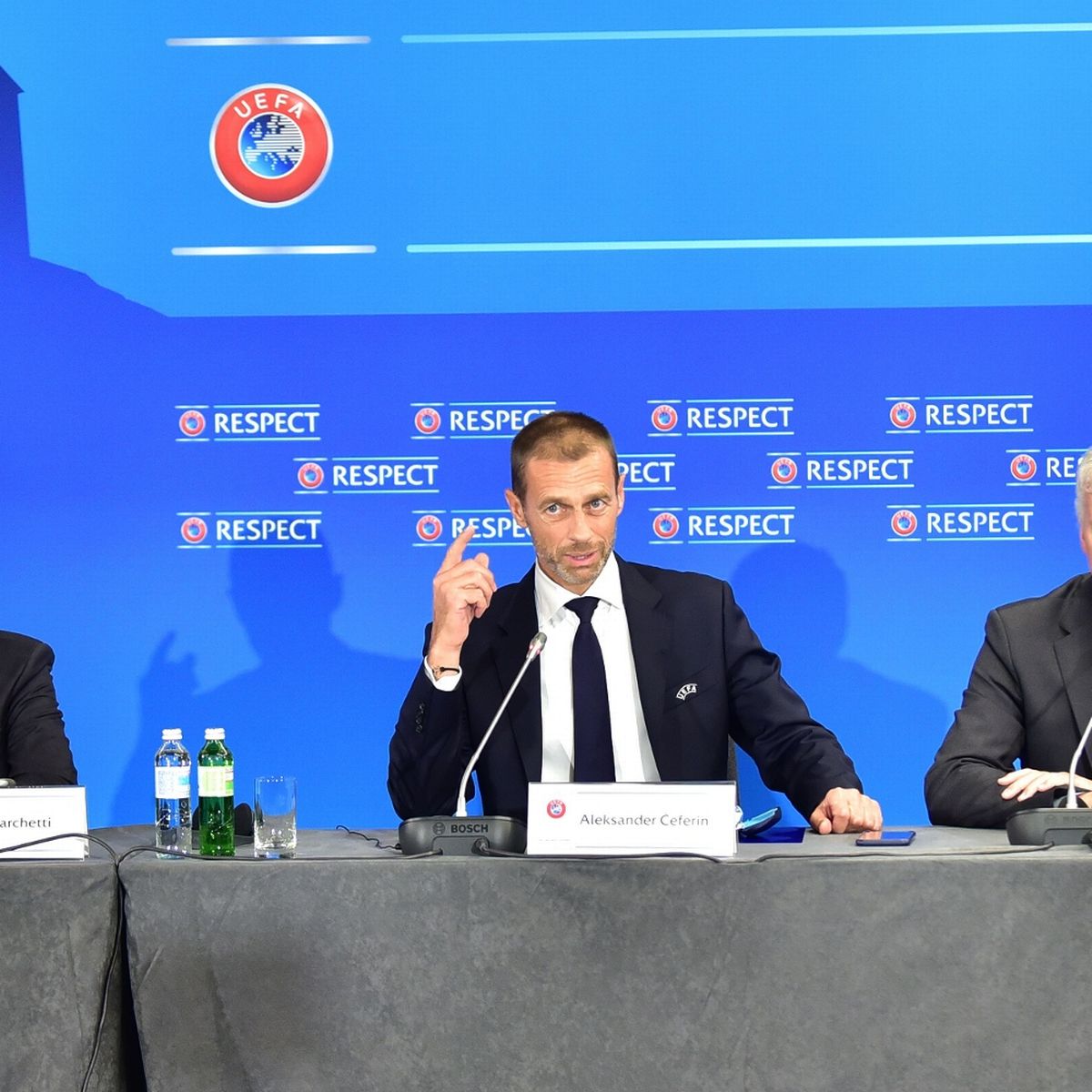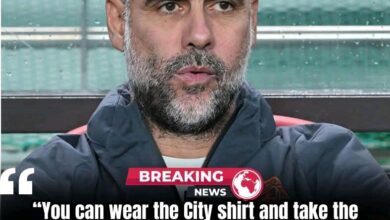Tottenham one of three clubs to oppose major UEFA rule change that will impact several Premier League teams, the decision is really affecting the team

Tottenham Hotspur has recently found itself at the center of a significant debate within European football circles, particularly concerning a major rule change proposed by UEFA. This rule change, which will have a profound impact on several Premier League clubs, including Tottenham, has sparked both support and opposition among the teams involved.
UEFA, the governing body of European football, has introduced a series of changes to its flagship tournaments—the Champions League, Europa League, and Conference League. These changes, which will take effect this season, mark a substantial shift in how these competitions are structured and managed.
One of the most notable changes involves the format of the competitions. The traditional group stage format has been replaced by a new league phase that will feature 36 teams. In this new format, each team in the Champions League and Europa League will face eight different opponents during this phase, while teams in the Conference League will compete against six. This change is designed to increase the level of competition and excitement, offering fans more variety in the matches they can watch.
However, the change that has garnered the most attention—and controversy—is not related to the structure of the competitions but rather to the experience of the supporters, particularly those who travel to watch their teams play in away games. UEFA has announced new regulations that cap the prices that clubs can charge for away tickets in these competitions. This decision is seen as an attempt to make European football more accessible to fans, especially in the current economic climate.
For the 2024-2025 season, UEFA has set a maximum price of €60 (£50) for away tickets in the Champions League. In the Europa League, the cap is set at €40, and in the Conference League, it is €20. These caps will be reduced further in the following season, with a €50 cap for the Champions League and a €35 cap for the Europa League.
While these price caps are undoubtedly good news for fans, who often bear the brunt of the financial burden when supporting their teams on the road, not all clubs have welcomed this decision. Tottenham Hotspur, in particular, has reportedly opposed the lowering of ticket prices for away fans in the Europa League.
According to a report by The Telegraph, Tottenham was one of three clubs that raised objections to UEFA’s proposed price caps. Although it remains unclear whether the club formally voted against the changes, their opposition to the rule has been noted. Tottenham declined to provide a comment when approached by SPORTbible, leaving fans and commentators to speculate about the club’s reasoning.
The issue of ticket pricing is a sensitive one, particularly for a club like Tottenham, which has a large and passionate fanbase. The club’s director of football administration and governance, Rebecca Caplehorn, serves on the European Club Competitions Committee, which endorsed the reduction in maximum ticket prices. Despite this, the club’s stance on the matter suggests a potential conflict between their role within the committee and their commercial interests.
This opposition from Tottenham comes at a time when the club’s relationship with its supporters has already been strained. Recently, Tottenham fans expressed their displeasure with the club’s decision to discontinue senior season tickets starting from the next season. This move, which affects long-time supporters, has been met with significant backlash and has further complicated the club’s public relations.
The financial implications of UEFA’s new ticket pricing policy are clear. By capping ticket prices, clubs stand to lose revenue from their European matches, particularly those clubs with larger stadiums and higher operating costs. For Tottenham, which has invested heavily in its new stadium and seeks to maximize its matchday revenue, the reduction in ticket prices could have a noticeable impact on their bottom line.
However, the decision by UEFA to implement these price caps reflects a broader trend in football governance aimed at addressing the growing concerns about the cost of following football. In recent years, there has been increasing pressure from fan groups and other stakeholders to make football more affordable, particularly in light of the rising costs associated with attending matches.
For UEFA, the decision to cap ticket prices is likely part of a broader strategy to ensure that the game remains accessible to a wide audience. As the governing body of European football, UEFA has a responsibility to balance the financial interests of clubs with the needs of supporters, who are the lifeblood of the sport. By capping away ticket prices, UEFA is taking a step towards making European football more inclusive, ensuring that fans from all walks of life can continue to support their teams.
The controversy surrounding Tottenham’s opposition to the rule change highlights the ongoing tension between the commercial realities of modern football and the need to preserve the sport’s accessibility to its fans. As clubs continue to navigate these challenges, the decisions they make will have a lasting impact on their relationships with their supporters and their standing within the broader football community.
In the case of Tottenham Hotspur, their stance on this issue may also reflect broader strategic considerations. As a club that consistently competes at the highest levels of European football, Tottenham is likely acutely aware of the financial pressures associated with maintaining a competitive squad. The revenues generated from matchday sales, including ticket prices, play a crucial role in supporting the club’s ambitions both domestically and in Europe.
However, this focus on financial sustainability must be balanced against the club’s responsibility to its supporters. In an era where fans are increasingly vocal about their concerns regarding the commercialization of football, clubs like Tottenham must tread carefully to avoid alienating their fanbase. The decision to oppose UEFA’s price cap on away tickets may be seen by some as a misstep in this regard, potentially undermining the club’s relationship with its supporters.
As the new European season gets underway, it will be interesting to see how Tottenham and other clubs adapt to the changes introduced by UEFA. The new league format, combined with the price caps on away tickets, represents a significant shift in how European football is organized and experienced. For clubs, this means adjusting to new competitive and financial realities, while for fans, it offers both opportunities and challenges in supporting their teams.
For Tottenham, the Europa League campaign this season will see them face a range of opponents from across the continent. The club has been drawn in a group that includes Qarabag, Alkmaar, Roma, and Elfsborg, with away trips to Ferencvaros, Galatasaray, Rangers, and Hoffenheim. These matches will not only test the team’s abilities on the pitch but also serve as a barometer for the club’s relationship with its supporters, particularly in light of the recent ticket pricing controversy.
As football continues to evolve, the balance between commercial interests and the needs of supporters will remain a critical issue. For UEFA, the decision to cap away ticket prices is a clear statement of intent to prioritize the fan experience. For clubs like Tottenham, the challenge lies in finding ways to align their financial strategies with the expectations of their supporters, ensuring that they remain competitive both on and off the pitch.
In conclusion, the opposition from Tottenham Hotspur to UEFA’s decision to cap away ticket prices highlights the complex and often contentious relationship between football clubs and their governing bodies. As clubs navigate the financial pressures of competing at the highest levels, they must also remain mindful of their responsibilities to their supporters. The changes introduced by UEFA this season, including the new league format and ticket pricing caps, represent a significant shift in the landscape of European football. How clubs like Tottenham respond to these changes will have a lasting impact on their success and their relationship with their fans.















